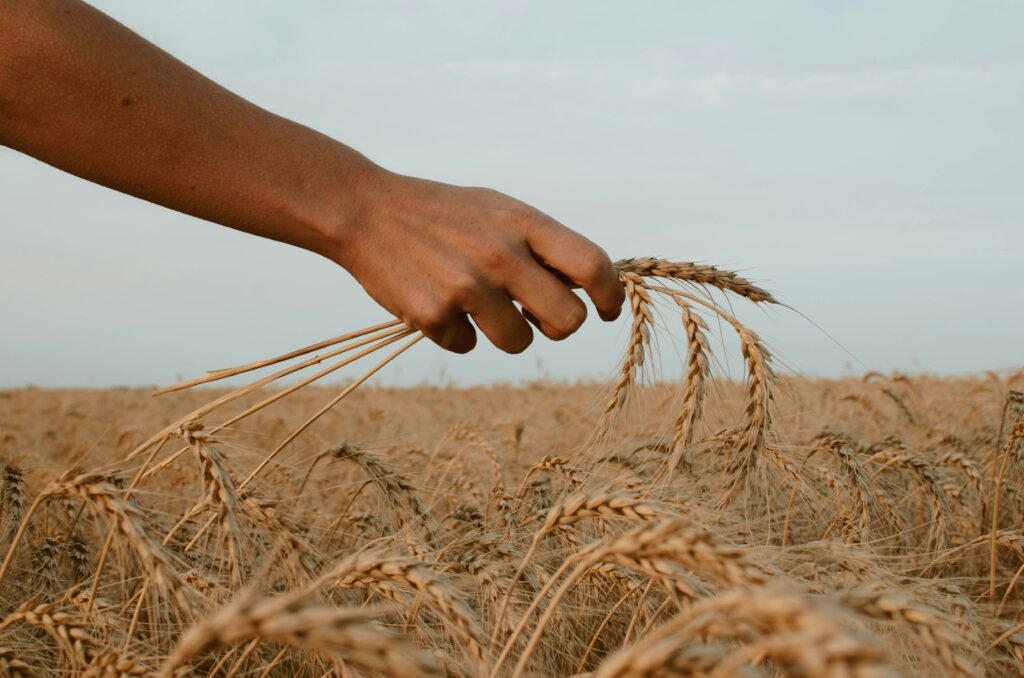
Part 1: Background | Part 2: Loyal Love
A woman seeking food for her family has lost her family. Her husband and both of her sons are gone forever, and she is in a strange land. She accepts the obvious conclusion: the God of Israel may be great, but He is not good. He has not been great for her. He has not kept His covenant promises. She went out full, and God has brought her back empty (Ru 1.21).
Is she right?
Will the covenant God let her continue in her dismay?
The plot has begun; now it thickens.
Boaz is “a man of great wealth” (Ru 2.1). This can refer to military prowess (Gideon, Judg 6.12) or to social standing (2K 15.20). This context probably points to the latter. So Boaz is wealthy.
The Mosaic Law provides that a childless widow can expect a near relative of her late husband to “redeem” her (Dt 25.5-10). This may involve buying back property, paying off debts, or even fathering a legal heir to the late husband. Boaz is not only biologically qualified to be the redeemer, but he is logistically qualified as well.
Ruth’s “chance chanced” (“she happened to come”) to bring her to the fields of Boaz (Ru 2.3). The writer means it to be ironic. “The lot is cast into the lap, but its every decision is from the Lord” (Pr 16:33).
“That Boaz was a godly man is stressed from the moment he is introduced in the account. When he came out from Bethlehem to inspect the harvest he greeted his reapers in the name of Yahweh. They responded in kind” (OTSS).
And the first thing this godly man does after greeting his workers is ask about the woman he doesn’t recognize. Bethlehem is a small town, and he would know its faces.
“In the ancient Near East life outside a family was impossible, and since Boaz does not recognize Ruth he is sufficiently concerned to inquire about her background. The foreman furnishes the required details, along with the fact that Ruth has requested permission to glean. The foreman himself has been keeping her under observation, and has noted the quality of her work. Even under the hot sun she takes only a brief rest interval” (ECB).
The fact that he has heard of her already signifies God’s kind providence in bringing word of her character to Boaz, and God’s preparation of Boaz’s heart to be interested in helping her. In the small village of Bethlehem, the return of Naomi, and the arrival of Ruth, would be the talk of the town; as soon as his foreman says this woman is “the Moabite woman with Naomi,” Boaz knows the backstory.
At this point Boaz knows that she is a relative, but she doesn’t.
Boaz calls Ruth “my daughter” (Ru 2.8). This implies two things. First, he is considerably older than she is; and second, he is taking responsibility for her—at least for her safety and provision while she is on his property.
The Law required landowners to allow the poor to glean the corners of their fields (Lv 19.9-10; 23.22). Apparently, charity could not be assumed; gleaners were in the practice of asking for permission (Ru 2.7). Boaz extends permission but also urges her to work alongside his female workers (Ru 2.8; apparently those binding the sheaves). This would give her access to more grain and would provide physical protection. The fields were not a safe place for impoverished women seeking food (Ru 2.22). Not in the days of the judges.
Boaz orders the male workers not to molest her. That amounts to an order that they protect her from other workers as well; it would be so understood. “Boaz is hereby instituting the first anti–sexual-harassment policy in the workplace recorded in the Bible” (Block, NAC).
So now Ruth has a place to gather food in safety. This is a huge step forward for the two impoverished women.
Could Boaz be even more helpful than this?
Stay tuned.
Photo by Paz Arando on Unsplash

Leave a reply. Keep it clean.